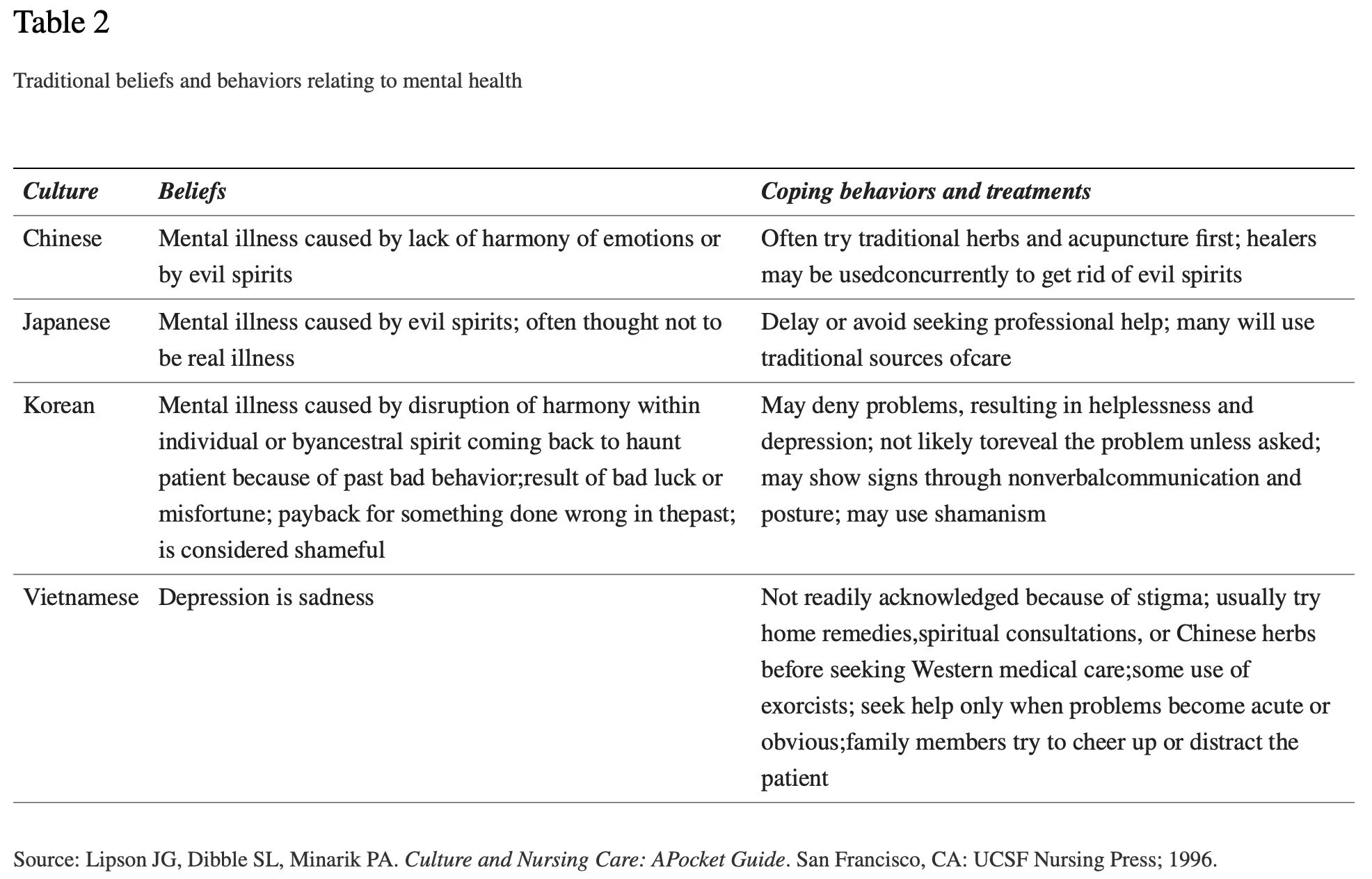What is Stigma?
A summary of stigma and the cultural nuances that come with it.
By Felicia Yap
What is Stigma?
Stigma can be understood as a negative stereotype or belief that can lead to discrimination and prejudice towards certain individuals and groups. It shapes societal attitudes, perceptions, and behaviors towards individuals who are associated with a particular condition or identity. Specifically in the context of mental health, it can reinforce harmful narratives like believing that mental health struggles are a personal failure and weakness. Things like cultural factors and societal expectations can contribute to the challenges and barriers that come with stigma.
Stigma surrounding mental health can often have huge effects on the wellbeing of individuals. It can create feelings of hesitation and fear, and people may feel scared to share their struggles with others. The fear of judgment, rejection, or being labeled as “different” can prevent individuals from speaking openly about their experiences. And this lack of open communication can contribute to feelings of isolation and make existing challenges worse.
It can also cause individuals to feel ashamed or embarrassed about their mental health issues. They may internalize societal and cultural judgments and beliefs, and this self-stigmatization could really harm a person’s self-esteem and self-worth.
Stigma can also contribute to a culture of silence and shame. This silence can perpetuate the already-stigmatized mental health issues and it also reinforces the notion that these issues should stay hidden or unacknowledged. This culture of shame could also further isolate individuals and prevent them from seeking support.
Another concerning impact of stigma is that it can create barriers to seeking proper care.
This circles back to the first point, of individuals feeling scared about being labeled and ostracized. This fear can discourage them from seeking proper help and support.
Cultural Factors
As we try to understand the roots of stigmatization of mental health within Asian communities, it’s important to consider the historical, cultural, and spiritual factors that have shaped these perceptions. We’re going to explore this through 2 concepts: collectivist culture and belief systems.
Collectivist Culture:
Many Asian cultures adopt a collectivist mindset, where the needs and expectations of the group are prioritized over the individuals needs. The well-being of the family and community are often seen as either equal to or more important than individual needs. And there may be a deep-rooted fear of bringing shame to families or communities if one is seen struggling with mental health. In this cultural context, being “different” or not adhering to societal norms is usually seen as negative, while fitting in and conforming to group expectations is highly valued.
Belief Systems:
Another aspect is the influence of belief systems on perceptions of mental health. In some Asian cultures, mental health challenges are attributed to spiritual or moral factors rather than biological or environmental causes. In these cultures, there could be a tendency to view struggles with mental health as punishment for past behaviors or as a sign of bad karma. These beliefs really impact how individuals perceive and approach mental health issues within themselves and others around them.
This table is from a Study by Kramer et al. that explored cultural factors influencing Asian American mental health. They looked at Chinese, Japanese, Korean, and Vietnamese culture and determined the coping behaviors and belief systems for each culture.
When we combine the collectivist culture and belief systems, we can start to understand the complex dynamics that contribute to mental health stigma within Asian communities. Many Asian cultures place a strong emphasis on maintaining face, preserving peace within the family, and this cultural context creates environments where seeking could be seen as a sign of failure to meet the group’s standards. People may hesitate to talk about their experiences with mental health in fear of being judged by their community or fear of bringing shame to their families.
If we view this in the lens of many Asian Americans, a lot of us face a unique challenge of having to navigate between living in an individualistic culture (which we have in American society) and our collectivistic cultural background at home with our families. This conflict between cultures creates pressure to conform to expectations, which can lead us to internalize our struggles and often times end up suffering in silence.
It’s important to remember that these cultural factors are not meant to stereotype or generalize the experiences of all Asian American individuals. Instead, they can help us better understand how these different contexts have shaped our perceptions of mental health, which can hopefully be a foundation to begin creating more inclusive and compassionate communities. Mental health professionals should also be aware of these cultural factors when interacting with patients who come from collectivist cultures.
References
Ahmedani, B. K. (2011). Mental health stigma: society, individuals, and the profession. Journal of social work values and ethics, 8(2), 4-1.
Han, M., & Pong, H. (2015). Mental health help-seeking behaviors among Asian American community college students: The effect of stigma, cultural barriers, and acculturation. Journal of College Student Development, 56(1), 1-14.
Kramer, E. J., Kwong, K., Lee, E., & Chung, H. (2002). Cultural factors influencing the mental health of Asian Americans. Western Journal of Medicine, 176(4), 227.
Kudva, K. G., El Hayek, S., Gupta, A. K., Kurokawa, S., Bangshan, L., Armas
Villavicencio, M. V. C., ... & Sartorius, N. (2020). Stigma in mental illness: Perspective from eight Asian nations. Asia‐Pacific Psychiatry, 12(2), e12380.
Lauber, C., & Rössler, W. (2007). Stigma towards people with mental illness in developing countries in Asia. International review of psychiatry, 19(2), 157-178.
Papadopoulos, C., Foster, J., & Caldwell, K. (2013). ‘Individualism-collectivism’ as an explanatory device for mental illness stigma. Community mental health journal, 49, 270-280.
Shea, M., & Yeh, C. (2008). Asian American students' cultural values, stigma, and relational self-construal: Correlates of attitudes toward professional help seeking. Journal of Mental Health Counseling, 30(2), 157-172.



